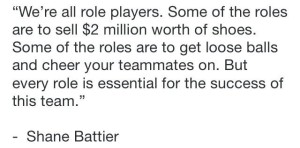That quote above from Shane Battier paints a great picture of what is required for teams to come together and accomplish their goals. Everyone plays a critical role in the direction of the team and without full support from everyone involved, success becomes much harder to achieve.
Another one of my favorite quotes comes from The Rock who was working for the WWE back in the 1990’s-2000’s. He became notorious for delivering the line “Know Your Role and Shut Your Damn Mouth” and when uttered on a live microphone, audiences would eat it up. While the phrase was primarily created to fire up rowdy wrestling fans, the first 3 words of his catch phrase are extremely important to what we do each day that we’re on the air.
 To start out this piece I’d like you to do an exercise tonight. Trust me, it’s painless and chances are it’s something you likely already do. Tonight when you arrive at home, I want you to turn on your television and watch a sitcom. If sitcoms aren’t your cup of tea, put on a movie. By the time the program is done, I want you to reflect back on the program and see if you can identify the main storyline, the key characters in the show, the roles the key characters play and the way those characters connected with you.
To start out this piece I’d like you to do an exercise tonight. Trust me, it’s painless and chances are it’s something you likely already do. Tonight when you arrive at home, I want you to turn on your television and watch a sitcom. If sitcoms aren’t your cup of tea, put on a movie. By the time the program is done, I want you to reflect back on the program and see if you can identify the main storyline, the key characters in the show, the roles the key characters play and the way those characters connected with you.
I believe the TV and film industries do a fabulous job with role definition on various shows and featured films. The sports radio industry however has some catching up to do. When you look on the screen, characters are built up prior to being introduced and then they are explained and reinforced with key branding messages. They rarely stray from what you expect them to be and that makes it easy for audiences to identify with them while getting sucked into storylines with regularity.
 Think for a second of some key television shows and how they’ve connected. If you watched American Idol in it’s heyday, you turned on the channel to either love or loathe Simon Cowell. If you watched The Sopranos you either wanted to see Tony Soprano get away with murder or get a taste of his own medicine. In both cases, they had characters around them who offered something entirely different and that kept the show fresh, interesting and unique.
Think for a second of some key television shows and how they’ve connected. If you watched American Idol in it’s heyday, you turned on the channel to either love or loathe Simon Cowell. If you watched The Sopranos you either wanted to see Tony Soprano get away with murder or get a taste of his own medicine. In both cases, they had characters around them who offered something entirely different and that kept the show fresh, interesting and unique.
If you look at it in simpler terms, one medium scripts it’s work, perfects its performance, defines it’s people and delivers content that an audience adjusts their routines to consume, enjoy and connect with each week. The other operates off the cuff and puts the power of a content presentation usually in the hands of 1-2 people with very limited support around them. It’s the equivalent of throwing a good swimmer in the middle of the ocean without a life preserver and asking them to find a way to shore when there’s no sign of land.
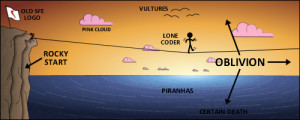 That being said, those who earn the responsibility of working without a net are often stubborn and not always accurate when it comes to making decisions that are in the best interest of the audience. In many cases they don’t understand their role on a show or the way they’re perceived thru the eyes and ears of the audience. Even worse, sometimes they don’t want to play to the audiences expectations even if they do understand them.
That being said, those who earn the responsibility of working without a net are often stubborn and not always accurate when it comes to making decisions that are in the best interest of the audience. In many cases they don’t understand their role on a show or the way they’re perceived thru the eyes and ears of the audience. Even worse, sometimes they don’t want to play to the audiences expectations even if they do understand them.
I recall meeting with a show during my time in St. Louis and when I asked one of the two hosts to define how he felt the audience saw him, he said he felt they’d say he was passionate and entertaining. This was a guy who was your typical sports television anchor, very smart, informed, well prepared and usually reserved. By most people’s standards he was a great guy. However, passionate and entertaining he was not.
 His partner on the other hand was a polarizing figure who the market either loved or hated and he too responded by telling me he was seen as a smart, likable, funny and well rounded personality. He wanted to be liked because at his core he was a great human being but his stances on subjects were very divisive and therein lied the struggle for this individual.
His partner on the other hand was a polarizing figure who the market either loved or hated and he too responded by telling me he was seen as a smart, likable, funny and well rounded personality. He wanted to be liked because at his core he was a great human being but his stances on subjects were very divisive and therein lied the struggle for this individual.
When I told both of them they had no understanding of the way the audience saw them they seemed perplexed. I then went thru some examples of how they could strike a chord with people and why the imaging we had in place was written the way it was done to promote them. When they left the room, they had a better idea of why I felt they were struggling and suggestions on how to fix it but they kept trying to identify with a role that they had built up in their minds yet wasn’t seen the same way by the audience. The end result was an under performing show that eventually had to be replaced.
 I can’t even tell you how many times this occurs. Personalities sometimes want so badly to be something they’re not that they’ll try to overcompensate by doing things out of character and even worse, they’ll try to reject the way they’re positioned on the air in promos, liners and in station marketing pieces. The problem with that is that it’s not just about the PD’s vision or the personality’s opinion on who they think they are, it’s about connecting with a listening audience and playing the role of a character that they identify with. Let me give a few examples of role definition and why I believe it’s important for shows.
I can’t even tell you how many times this occurs. Personalities sometimes want so badly to be something they’re not that they’ll try to overcompensate by doing things out of character and even worse, they’ll try to reject the way they’re positioned on the air in promos, liners and in station marketing pieces. The problem with that is that it’s not just about the PD’s vision or the personality’s opinion on who they think they are, it’s about connecting with a listening audience and playing the role of a character that they identify with. Let me give a few examples of role definition and why I believe it’s important for shows.
In San Francisco my afternoon drive time host Damon Bruce has a lot of strong opinions, he delivers his views with a ton of passion and he’s been known to ruffle a few feathers from time to time. You could say he’s not everybody’s cup of tea but whether he’s loved or hated, people know where to find him and usually have an opinion about something he said.
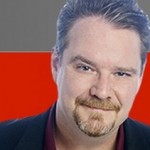 Now we could pretend that Damon isn’t edgy or hasn’t made a few folks uncomfortable along the way with his takes but that would be silly because the audience is smarter than that. Instead we positioned the show with some aggressive style promos prior to launching it, we reinforce his strong takes in the promos that we run and we use a godzilla-like stinger heading into breaks which gives the show some extra edge and personality.
Now we could pretend that Damon isn’t edgy or hasn’t made a few folks uncomfortable along the way with his takes but that would be silly because the audience is smarter than that. Instead we positioned the show with some aggressive style promos prior to launching it, we reinforce his strong takes in the promos that we run and we use a godzilla-like stinger heading into breaks which gives the show some extra edge and personality.
The bottom line is we embrace what he brings to the airwaves and reinforce that position. Whether it’s everyone’s taste or not is irrelevant because the fact of the matter is it’s an accurate reflection of Damon’s on-air personality and when you put on his show he’s going to provide a compelling listen and not be afraid to take certain positions that others might not. That in itself makes branding the show pretty easy and the way it’s imaged and branded is in line with the expectations of the listener.
More times than not, brand building with a solo host is pretty simple. All you need to do is take a look at some of the characteristics that they possess and get a sense of what the audience expects from them and then play to those strengths. I often like to use music bumping in from breaks that fits the individual and their style to reinforce the mood and I think that writing liners that reinforce the personality’s key traits inside of the show is another smart tactic.
On the other hand if you look at how a 3-person show is built, it’s a whole different animal. It’s similar to creating a big three in the NBA.
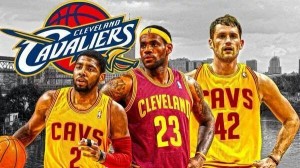 For example, LeBron James in Cleveland will likely be expected to take the last shot, play smothering defense, be the vocal leader and attack the rim every chance he gets. Kyrie Irving will be asked to run each play, put his teammates in position to get good looks at the basket and serve as a complimentary scorer when LeBron needs help. And once the Kevin Love trade is finalized, Kevin will be asked to rebound the basketball, crowd the paint and light it up from outside when he’s able to break free. Each player is crucial to the team’s success but each of them takes on a different role to best help the team win.
For example, LeBron James in Cleveland will likely be expected to take the last shot, play smothering defense, be the vocal leader and attack the rim every chance he gets. Kyrie Irving will be asked to run each play, put his teammates in position to get good looks at the basket and serve as a complimentary scorer when LeBron needs help. And once the Kevin Love trade is finalized, Kevin will be asked to rebound the basketball, crowd the paint and light it up from outside when he’s able to break free. Each player is crucial to the team’s success but each of them takes on a different role to best help the team win.
I have a theory that I’ve developed when it comes to 3-person shows. In most cases it’s worked out alright even though sometimes the individuals playing the roles inside the show may not always embrace it. Coming up early in my career in NY I worked on a few different morning shows with a variety of characters and I remember being told that when it came to group shows, you want to strive to combine people from different backgrounds and in a perfect world, if you can pinpoint the “deer, dick and dork” on a show then you’re in great shape. That line always stuck with me and made a lot of sense.
If those buzz words seem harsh, feel free to substitute the terms “the hero”, “the villain” and “the neutral one” (often this is the journalist, the stat person, the PXP broadcaster, etc.). Just because you have three guys though who fit these terms doesn’t mean the show is going to work. They still need to have chemistry, be entertaining and discuss the right subjects but assuming those things are in place, when you have three people fitting descriptions that make them easy to identify, that’s a huge win. Remember, it’s about connecting with an audience and people are more likely to recall individuals on the air who they can easily identify.
 As an example, when I was in St. Louis I had an awesome afternoon show at 101 ESPN titled “The Fast Lane“. The show as consistently top 3 and even went to #1 and while each guy was extremely talented, the reason it was so successful was because each guy naturally fit the role he was playing and he didn’t try to run from the perception of how he was seen.
As an example, when I was in St. Louis I had an awesome afternoon show at 101 ESPN titled “The Fast Lane“. The show as consistently top 3 and even went to #1 and while each guy was extremely talented, the reason it was so successful was because each guy naturally fit the role he was playing and he didn’t try to run from the perception of how he was seen.
In Randy Karraker’s case he came across most times as the “dork” simply because he was so damn informative and the guy you most likely learned the most from listening to the show. He was also the radio captain of the show handling all the formatics. Bob Ramsey meanwhile played the “dick” role because he wasn’t worried about popular opinion and sometimes would get a case of the red ass and not think twice to light someone up. The third member was D’Marco Farr and he came across as the “dear” due to being a big lovable teddy bear on-air and a member of the Rams Super Bowl 34 championship team.
This doesn’t mean that Bob was a jerk and couldn’t be positive or that Randy wasn’t lovable or a hard ass too but rather than trying to complicate things, each of those guys embraced their roles on the show, played them to perfection and as a result, audiences related to and connected with them and made them a household brand in the market. Because they were all naturally different and because they worked at developing their chemistry and embracing their differences, they had a lot of success.
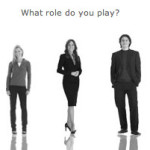 The purpose of this piece today is to get you to think about your show, your brand and how you position it to the marketplace. Are you using the right buzz words to identify yourself? Are you trying to play the role of someone you’re not? Do you have a show you’re involved in that has too many of the same type of styles and not enough variety to stand out? Those are the things that you’ve got to examine if you want people to form deeper relationships and stronger opinions on your presentation.
The purpose of this piece today is to get you to think about your show, your brand and how you position it to the marketplace. Are you using the right buzz words to identify yourself? Are you trying to play the role of someone you’re not? Do you have a show you’re involved in that has too many of the same type of styles and not enough variety to stand out? Those are the things that you’ve got to examine if you want people to form deeper relationships and stronger opinions on your presentation.
I’ll say this, one show that gets this probably better than anyone is Mike and Mike. Some guys will quickly say they love the show and tell you every reason they do and when they do that, they’re almost always restating the key words that have been built around the Mike and Mike brand.
Those who don’t like the show will almost always call it corny or proceed to complain about one of Golic or Greeny’s traits that are highlighted in the marketing approach of the show. That is the beauty of role definition and character development. If you can pinpoint who does what in each show, what the individual is about and why you love/hate the personality or show then you likely have a winner on your hands and few will disagree that Mike and Mike have been a winner for a long time. Here’s an older TV commercial of theirs that captures their differences and highlight who they are as personalities.
http://www.youtube.com/watch?v=b146pasyO0E
One thing I like to do prior to the launch of a show is assemble the people involved in the show in a room and write some words on a board that the group feels reflect the individual positively and negatively in the minds of the audience. Often times talent will see them, write things down, counter them, inquire more on why the audience sees them a certain way and by the time they’re done in the room, they have a stronger idea of who they are to the audience and what they’ll need to do to reinforce their character and add to it in order to form a stronger connection.
 This doesn’t work with everyone but if you can get your crew in a room and they’re open minded and willing to self-analyze and allow some outside feedback to better help position the show, it can be very helpful.
This doesn’t work with everyone but if you can get your crew in a room and they’re open minded and willing to self-analyze and allow some outside feedback to better help position the show, it can be very helpful.
Remember, who we are as people and who we are on the air can be very different sometimes but once that light goes on and the microphone is hot, all that matters is finding a way to connect the audience to your on-air persona. When you’re able to do that, it can be very powerful and put you on a path to superstardom. I’m sure you’d agree that creating the radio equivalent of Seinfeld, American Idol or The Sopranos wouldn’t be bad for your career. So what’s stopping you?

Jason Barrett is the Founder and CEO of Barrett Media. The company launched in September 2015 and has provided consulting services to America’s top audio and video brands, while simultaneously covering the media industry at BarrettMedia.com, becoming a daily destination for media professionals. Prior to Barrett Media, Jason built and programmed 95.7 The Game in San Francisco, and 101 ESPN in St. Louis. He was also the first sports programmer for SportsTalk 950 in Philadelphia, which later became 97.5 The Fanatic. Barrett also led 590 The Fan KFNS in St. Louis, and ESPN 1340/1390 in Poughkeepsie, NY, and worked on-air and behind the scenes at 101.5 WPDH, WTBQ 1110AM, and WPYX 106.5. He also spent two years at ESPN Radio in Bristol, CT producing ‘The Dan Patrick Show’ and ‘GameNight’. JB can be reached on Twitter @SportsRadioPD or by email at Jason@BarrettMedia.com.



